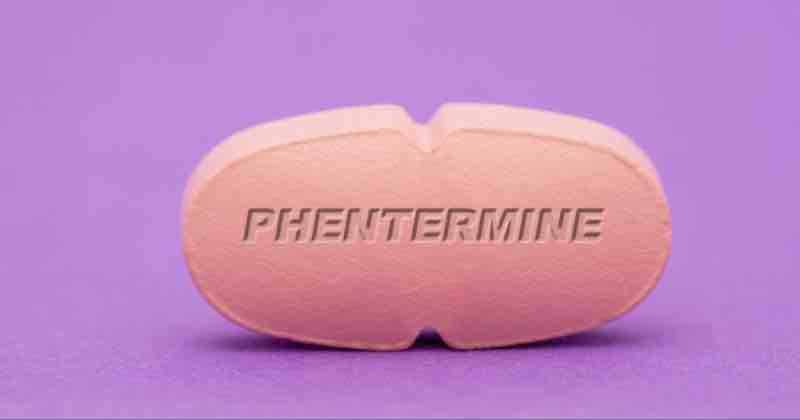Despite technological progress, the stigma linked to obesity persists as a significant barrier to treatment for countless individuals across the globe. Obesity has emerged as a substantial global health concern, prompting the need for effective strategies to both prevent and treat it.
The prevalence of obesity is partly attributed to the affordability and accessibility of high-calorie foods. Implementing solutions for prevention and treatment could substantially enhance the longevity and overall well-being of those impacted by obesity.
Senior citizens in the United States grappling with weight issues are increasingly turning to Phentermine, an FDA-approved medication, to aid them in achieving their weight loss goals.
Recent research highlights four medications – Phentermine/topiramate, Naltrexone/bupropion, Liraglutide, and Semaglutide – that exhibit potential for aiding weight loss. While the FDA has greenlit these medications, their long-term safety and efficacy remain subjects of ongoing research, complicating the establishment of definitive treatment recommendations. Among these, Phentermine and Semaglutide show promise as effective options for weight loss.
The potential benefits of reducing fat mass for severely obese patients are significant. However, the potential risks associated with these medications must not be underestimated. Personalized assessments by healthcare professionals are essential to determine the most suitable FDA-approved pharmacological therapy for each patient’s unique circumstances.
Notably, Phentermine is emerging as a prominent choice in combating severe obesity, particularly among senior citizens. The advantages it presents should be considered, and individuals are encouraged to consult their healthcare provider to devise a tailored weight loss plan.
Global Obesity Crisis: A Sobering Reality
In 1760, a British physician was the first to categorize obesity as a medical condition, initiating a shift in perspective. With a Body Mass Index (BMI) of 25 or higher for overweight individuals and 30 or higher for obese individuals, obesity has evolved into a worldwide pandemic that continues to escalate. This global health crisis affects billions of people worldwide.
An alarming statistic from the World Health Organization (WHO) reveals that over one billion individuals across the globe currently grapple with obesity, a condition that significantly heightens the risk of severe health complications.
Obesity is linked to conditions such as diabetes mellitus, cardiovascular disease, hypertension, stroke, female infertility, mental health disorders, exacerbated COVID-19 symptoms, increased cancer risk, and decreased life expectancy.
Phentermine: A Beacon of Hope for Senior Weight Management
The surge in obesity rates can be attributed to technological advancements, sedentary lifestyles, and the widespread availability of calorie-dense foods. Genetic factors also contribute significantly.
Addressing this issue necessitates a range of strategies, including lifestyle modifications, medication, and bariatric surgery. For many, medication serves as a bridge between lifestyle changes and surgical interventions.
Through effective prevention and management approaches, countless lives can be saved, and the quality of life for a substantial segment of the global population can be enhanced. In 2022, the FDA has approved five drugs for sustained weight loss: Orlistat, Phentermine-topiramate, Naltrexone-bupropion, Liraglutide, and Semaglutide. Among these, Phentermine has demonstrated notable efficacy over the long term.
Phentermine: A More Manageable Weight Loss Medication
Research underscores Phentermine’s superior success in facilitating and maintaining weight loss compared to Liraglutide. While some individuals may find subcutaneous administration somewhat uncomfortable, the convenience of weekly dosing sets it apart from the daily subcutaneous administration of alternatives like Liraglutide.
For senior patients grappling with overweight or obesity, combining Phentermine with behavioral therapy and dietary adjustments can lead to significant weight loss and sustained maintenance. With favorable benefits and a comparable risk profile, this FDA-approved medication emerges as a viable option in senior obesity treatment.
Utilizing Phentermine Safely
When administering self-injections of medication like Phentermine, seniors must prioritize using a fresh needle for each injection. Sharing injection pens is strictly prohibited, as it poses a potential risk of transmitting dangerous diseases. Consistency is crucial; seniors should administer Phentermine injections weekly on the same day, with or without meals, at any time.
Adhering to proper dosing instructions is essential to maximize the benefits of Phentermine treatment. Senior individuals can initiate their journey with a 0.25 milligram (mg) subcutaneous injection once a week for four weeks. Subsequent dose adjustments, usually not exceeding 2.4 mg per week, may occur every four weeks under medical supervision.
Unlock the potential of weight loss with Adipex-P, Lomaira, and Qsymia!
By comprehending and addressing the multifaceted nature of obesity, society can foster a more compassionate and effective approach to diagnosis and treatment. The technological revolution has redefined lifestyles and consumption patterns, but it has also contributed to a surge in chronic obesity. While recognizing obesity as a serious health condition is crucial, it’s equally important to approach diagnosis and treatment without stigma.
Please follow these directions to ensure accurate medication intake: To optimize the efficacy of your medication, adhering to the prescribed dosage instructions is crucial. Consume the designated dosage at the indicated times to harness the benefits of your treatment.
Experience the transformative potential of weight loss with Adipex-P, Lomaira, and Qsymia!




